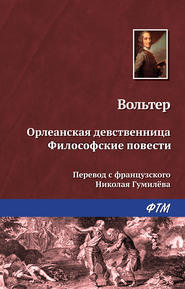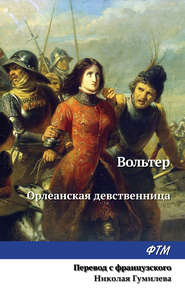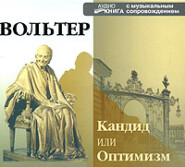По всем вопросам обращайтесь на: info@litportal.ru
(©) 2003-2024.
✖
A Philosophical Dictionary, Volume 10
Настройки чтения
Размер шрифта
Высота строк
Поля
What an infamous idea, to imagine that a priest of Isis and Cybele, by playing cymbals and castanets, will reconcile you to the Divinity. And what then is this priest of Cybele, this vagrant eunuch, who lives on your weakness, and sets himself up as a mediator between heaven and you? What patent has he received from God? He receives money from you for muttering words; and you think that the Being of Beings ratifies the utterance of this charlatan!
There are innocent superstitions; you dance on festival days, in honor of Diana or Pomona, or some one of the secular divinities of which your calendar is full; be it so. Dancing is very agreeable; it is useful to the body; it exhilarates the mind; it does no harm to any one; but do not imagine that Pomona and Vertumnus are much pleased at your having jumped in honor of them, and that they may punish you for having failed to jump. There are no Pomona and Vertumnus but the gardener's spade and hoe. Do not be so imbecile as to believe that your garden will be hailed upon, if you have missed dancing the pyrrhic or the cordax.
There is one superstition which is perhaps pardonable, and even encouraging to virtue – that of placing among the gods great men who have been benefactors to mankind. It were doubtless better to confine ourselves to regarding them simply as venerable men, and above all, to imitating them. Venerate, without worshipping, a Solon, a Thales, a Pythagoras; but do not adore a Hercules for having cleansed the stables of Augeas, and for having lain with fifty women in one night.
Above all, beware of establishing a worship for vagabonds who have no merit but ignorance, enthusiasm, and filth; who have made idleness and beggary their duty and their glory. Do they who have been at best useless during their lives, merit an apotheosis after their deaths? Be it observed, that the most superstitious times have always been those of the most horrible crimes.
SECTION V
The superstitious man is to the knave, what the slave is to the tyrant; nay more – the superstitious man is governed by the fanatic, and becomes a fanatic himself. Superstition, born in Paganism, adopted by Judaism, infected the Church in the earliest ages. All the fathers of the Church, without exception, believed in the power of magic. The Church always condemned magic, but she always believed in it; she excommunicated sorcerers, not as madmen who were in delusion, but as men who really had intercourse with the devils.
At this day, one half of Europe believes that the other half has long been and still is superstitious. The Protestants regard relics, indulgences, macerations, prayers for the dead, holy water, and almost all the rites of the Roman church, as mad superstitions. According to them, superstition consists in mistaking useless practices for necessary ones. Among the Roman Catholics there are some, more enlightened than their forefathers, who have renounced many of these usages formerly sacred; and they defend their adherence to those which they have retained, by saying they are indifferent, and what is indifferent cannot be an evil.
It is difficult to mark the limits of superstition. A Frenchman travelling in Italy thinks almost everything superstitious; nor is he much mistaken. The archbishop of Canterbury asserts that the archbishop of Paris is superstitious; the Presbyterians cast the same reproach upon his grace of Canterbury, and are in their turn called superstitious by the Quakers, who in the eyes of the rest of Christians are the most superstitious of all.
It is then nowhere agreed among Christian societies what superstition is. The sect which appears to be the least violently attacked by this mental disease, is that which has the fewest rites. But if, with but few ceremonies, it is strongly attached to an absurd belief, that absurd belief is of itself equivalent to all the superstitious practices observed from the time of Simon the Magician, down to that of the curate Gaufredi. It is therefore evident that what is the foundation of the religion of one sect, is by another sect regarded as superstitious.
The Mussulmans accuse all Christian societies of it, and are accused of it by them. Who shall decide this great cause? Shall not reason? But each sect declares that reason is on its side. Force then will decide, until reason shall have penetrated into a sufficient number of heads to disarm force.
For instance: there was a time in Christian Europe when a newly married pair were not permitted to enjoy the nuptial rights, until they had bought that privilege of the bishop and the curate. Whosoever, in his will, did not leave a part of his property to the Church, was excommunicated, and deprived of burial. This was called dying unconfessed – i.e., not confessing the Christian religion. And when a Christian died intestate, the Church relieved the deceased from this excommunication, by making a will for him, stipulating for and enforcing the payment of the pious legacy which the defunct should have made.
Therefore it was, that Pope Gregory IX. and St. Louis ordained, after the Council of Nice, held in 1235, that every will to the making of which a priest had not been called, should be null; and the pope decreed that the testator and the notary should be excommunicated.
The tax on sins was, if possible, still more scandalous. It was force which supported all these laws, to which the superstition of nations submitted; and it was only in the course of time that reason caused these shameful vexations to be abolished, while it left so many others in existence.
How far does policy permit superstition to be undermined? This is a very knotty question; it is like asking how far a dropsical man may be punctured without his dying under the operation; this depends on the prudence of the physician.
Can there exist a people free from all superstitious prejudices? This is asking, Can there exist a people of philosophers? It is said that there is no superstition in the magistracy of China. It is likely that the magistracy of some towns in Europe will also be free from it. These magistrates will then prevent the superstition of the people from being dangerous. Their example will not enlighten the mob; but the principal citizens will restrain it. Formerly, there was not perhaps a single religious tumult, not a single violence, in which the townspeople did not take part, because these townspeople were then part of the mob; but reason and time have changed them. Their ameliorated manners will improve those of the lowest and most ferocious of the populace; of which, in more countries than one, we have striking examples. In short, the fewer superstitions, the less fanaticism; and the less fanaticism, the fewer calamities.
SYMBOL, OR CREDO
We resemble not the celebrated comedian, Mademoiselle Duclos, to whom somebody said: "I would lay a wager, mademoiselle, that you know not your credo!" "What!" said she, "not know my credo? I will repeat it to you. 'Pater noster qui.' … Help me, I remember no more." For myself, I repeat my pater and credo every morning. I am not like Broussin, of whom Reminiac said, that although he could distinguish a sauce almost in his infancy, he could never be taught his creed or pater-noster:
Broussin, dès l'âge le plus tendre,
Posséda la sauce Robert,
Sans que son précepteur lui pût jamais apprende
Ni son credo, ni son pater.
The term "symbol" comes from the word "symbolein," and the Latin church adopts this word because it has taken everything from the Greek church. Even slightly learned theologians know that the symbol, which we call apostolical, is not that of all the apostles.
Symbol, among the Greeks, signified the words and signs by which those initiated into the mysteries of Ceres, Cybele, and Mythra, recognized one another; and Christians in time had their symbol. If it had existed in the time of the apostles, we think that St. Luke would have spoken of it.
A history of the symbol is attributed to St. Augustine in his one hundred and fifteenth sermon; he is made to say, that Peter commenced the symbol by saying: "I believe in God, the Father Almighty." John added: "Maker of heaven and earth;" James proceeded: "I believe in Jesus Christ, His only Son, our Lord," and so on with the rest. This fable has been expunged from the last edition of Augustine; and I relate it to the reverend Benedictine fathers, in order to know whether this little curious article ought to be left out or not.
The fact is, that no person heard anything of this "creed" for more than four hundred years. People also say that Paris was not made in a day, and people are often right in their proverbs. The apostles had our symbol in their hearts, but they put it not into writing. One was formed in the time of St. Irenæus, which does not at all resemble that which we repeat. Our symbol, such as it is at present, is of the fifth century, which is posterior to that of Nice. The passage which says that Jesus descended into hell, and that which speaks of the communion of saints, are not found in any of the symbols which preceded ours; and, indeed, neither the gospels, nor the Acts of the Apostles, say that Jesus descended into hell; but it was an established opinion, from the third century, that Jesus descended into Hades, or Tartarus, words which we translate by that of hell. Hell, in this sense, is not the Hebrew word "sheol," which signifies "under ground," "the pit"; for which reason St. Athanasius has since taught us how our Saviour descended into hell. His humanity, says he, was not entirely in the tomb, nor entirely in hell. It was in the sepulchre, according to the body, and in hell, according to the soul.
St. Thomas affirms that the saints who arose at the death of Jesus Christ, died again to rise afterwards with him, which is the most general sentiment. All these opinions are absolutely foreign to morality. We must be good men, whether the saints were raised once or twice. Our symbol has been formed, I confess, recently, but virtue is from all eternity.
If it is permitted to quote moderns on so grave a matter, I will here repeat the creed of the Abbé de St. Pierre, as it was written with his own hand, in his book on the purity of religion, which has not been printed, but which I have copied faithfully:
"I believe in one God alone, and I love Him. I believe that He enlightens all souls coming into the world; thus says St. John. By that, I understand all souls which seek Him in good faith. I believe in one God alone, because there can be but one soul of the Great All, a single vivifying being, a sole Creator.
"I believe in God, the Father Almighty; because He is the common Father of nature, and of all men, who are equally His children. I believe that He who has caused all to be born equally, who arranges the springs of their life in the same manner, who has given them the same moral principles, as soon as they reflect, has made no difference between His children but that of crime and virtue.
"I believe that the just and righteous Chinese is more precious to Him than the cavilling and arrogant European scholar. I believe that God, being our common Father, we are bound to regard all men as our brothers. I believe that the persecutor is abominable, and that he follows immediately after the poisoner and parricide. I believe that theological disputes are at once the most ridiculous farce, and the most dreadful scourge of the earth, immediately after war, pestilence, famine, and leprosy.
"I believe that ecclesiastics should be paid and well paid, as servants of the public, moral teachers, keepers of registers of births and deaths; but there should be given to them neither the riches of farmers-general, nor the rank of princes, because both corrupt the soul; and nothing is more revolting than to see men so rich and so proud preach humility through their clerks, who have only a hundred crowns' wages.
"I believe that all priests who serve a parish should be married, as in the Greek church; not only to have an honest woman to take care of their household, but to be better citizens, to give good subjects to the state, and to have plenty of well-bred children.
"I believe that many monks should give up the monastic form of life, for the sake of the country and themselves. It is said that there are men whom Circe has changed into hogs, whom the wise Ulysses must restore to the human form."
"Paradise to the beneficent!" We repeat this symbol of the Abbé St. Pierre historically, without approving of it. We regard it merely as a curious singularity, and we hold with the most respectful faith to the true symbol of the Church.
SYSTEM
We understand by system a supposition; for if a system can be proved, it is no longer a system, but a truth. In the meantime, led by habit, we say the celestial system, although we understand by it the real position of the stars.
I once thought that Pythagoras had learned the true celestial system from the Chaldæans; but I think so no longer. In proportion as I grow older, I doubt of all things. Notwithstanding that Newton, Gregory, and Keil honor Pythagoras and the Chaldæans with a knowledge of the system of Copernicus, and that latterly M. Monier is of their opinion, I have the impudence to think otherwise.
One of my reasons is, that if the Chaldæans had been so well informed, so fine and important a discovery would not have been lost, but would have been handed down from age to age, like the admirable discoveries of Archimedes.
Another reason is that it was necessary to be more widely informed than the Chaldæans, in order to be able to contradict the apparent testimony of the senses in regard to the celestial appearances; that it required not only the most refined experimental observation, but the most profound mathematical science; as also the indispensable aid of telescopes, without which it is impossible to discover the phases of Venus, which prove her course around the sun, or to discover the spots in the sun, which demonstrate his motion round his own almost immovable axis. Another reason, not less strong, is that of all those who have attributed this discovery to Pythagoras, no one can positively say how he treated it.
Diogenes Laertius, who lived about nine hundred years after Pythagoras, teaches us, that according to this grand philosopher, the number one was the first principle, and that from two sprang all numbers; that body has four elements – fire, water, air, and earth; that light and darkness, cold and heat, wet and dry, are equally distributed; that we must not eat beans; that the soul is divided into three parts; that Pythagoras had formerly been Atalides, then Euphorbus, afterwards Hermotimus; and, finally, that this great man studied magic very profoundly. Diogenes says not a word concerning the true system of the world, attributed to this Pythagoras; and it must be confessed that it is by no means to an aversion to beans that we owe the calculations which at present demonstrate the motion of the earth and planets generally.
The famous Arian Eusebius, bishop of Cæsarea, in his "Evangelical Preparation," expresses himself thus: "All the philosophers declare that the earth is in a state of repose; but Philolaus, the peripatetic, thinks that it moves round fire in an oblique circle, like the sun and the moon." This gibberish has nothing in common with the sublime truths taught by Copernicus, Galileo, Kepler, and above all by Newton.
As to the pretended Aristarchus of Samos, who, it is asserted, developed the discoveries of the Chaldæans in regard to the motion of the earth and other planets, he is so obscure, that Wallace has been obliged to play the commentator from one end of him to the other, in order to render him intelligible.
Finally, it is very much to be doubted whether the book, attributed to this Aristarchus of Samos, really belongs to him. It has been strongly suspected that the enemies of the new philosophy have constructed this forgery in favor of their bad cause. It is not only in respect to old charters that similar forgeries are resorted to. This Aristarchus of Samos is also the more to be suspected, as Plutarch accuses him of bigotry and malevolent hypocrisy, in consequence of being imbued with a direct contrary opinion. The following are the words of Plutarch, in his piece of absurdity entitled "The Round Aspect of the Moon." Aristarchus the Samian said, "that the Greeks ought to punish Cleanthes of Samos, who suggested that the heavens were immovable, and that it is the earth which travels through the zodiac by turning on its axis."
They will tell me that even this passage proves that the system of Copernicus was already in the head of Cleanthes and others – of what import is it whether Aristarchus the Samian was of the opinion of Cleanthes, or his accuser, as the Jesuit Skeiner was subsequently Galileo's? – it equally follows that the true system of the present day was known to the ancients.
I reply, no; but that a very slight part of this system was vaguely surmised by heads better organized than the rest. I further answer that it was never received or taught in the schools, and that it never formed a body of doctrine. Attentively peruse this "Face of the Moon" of Plutarch, and you will find, if you look for it, the doctrine of gravitation; but the true author of a system is he who demonstrates it.
We will not take away from Copernicus the honor of this discovery. Three or four words brought to light in an old author, which exhibit some distant glimpse of his system, ought not to deprive him of the glory of the discovery.
Let us admire the great rule of Kepler, that the revolutions of the planets round the sun are in proportion to the cubes of their distances. Let us still more admire the profundity, the justness, and the invention of the great Newton, who alone discovered the fundamental reasons of these laws unknown to all antiquity, which have opened the eyes of mankind to a new heaven.
Petty compilers are always to be found who dare to become the enemies of their age. They string together passages from Plutarch and Athenæus, to prove that we have no obligations to Newton, to Halley, and to Bradley. They trumpet forth the glory of the ancients, whom they pretend have said everything; and they are so imbecile as to think that they divide the glory by publishing it. They twist an expression of Hippocrates, in order to persuade us that the Greeks were acquainted with the circulation of the blood better than Harvey. Why not also assert that the Greeks were possessed of better muskets and field-pieces; that they threw bomb-shells farther, had better printed books, and much finer engravings? That they excelled in oil-paintings, possessed looking-glasses of crystal, telescopes, microscopes, and thermometers? All this may be found out by men, who assure us that Solomon, who possessed not a single seaport, sent fleets to America, and so forth.
One of the greatest detractors of modern times is a person named Dutens, who finished by compiling a libel, as infamous as insipid, against the philosophers of the present day. This libel is entitled the "Tocsin"; but he had better have called it his clock, as no one came to his aid; and he has only tended to increase the number of the Zoilusses, who, being unable to produce anything themselves, spit their venom upon all who by their productions do honor to their country and benefit mankind.
TABOR, OR THABOR
A famous mountain in Judæa, often alluded to in general conversation. It is not true that this mountain is a league and a half high, as mentioned in certain dictionaries. There is no mountain in Judæa so elevated; Tabor is not more than six hundred feet high, but it appears loftier, in consequence of its situation on a vast plain.















